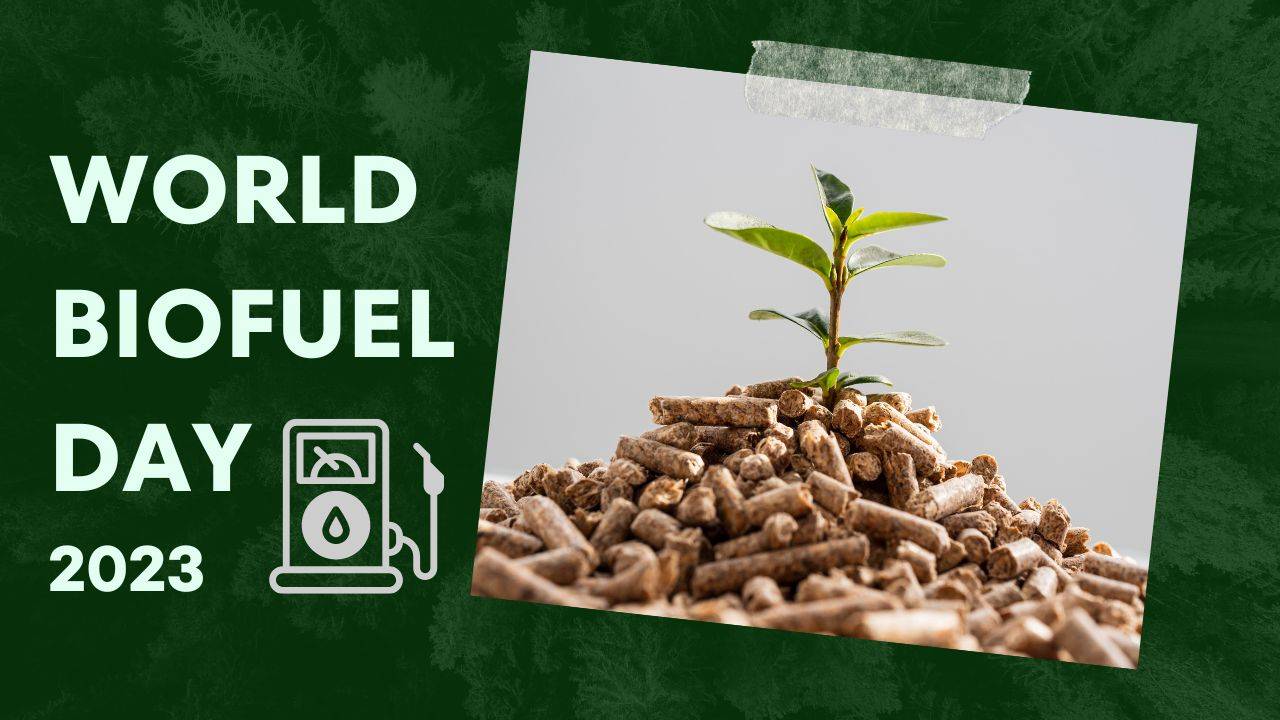
World Biofuel Day is observed every year on August 10 to raise awareness about the significance of non-fossil fuels as viable alternatives to traditional fossil fuels.
The day also aims to spotlight governmental initiatives in the field of biofuels. This observance is a tribute to Rudolf Diesel, credited with inventing the diesel engine. The Ministry of Petroleum and Natural Gas has been overseeing the celebrations since 2015.
What is Biofuel?
Biofuels, categorized as fuels derived from organic sources such as plants, crops, and animal waste, present a compelling and environmentally friendly substitute for traditional fossil fuels. Termed "biofuels," these energy sources are generated from biomass, including plants, agricultural residues, crops, and even algae.
As the global environmental consciousness intensifies, these renewable biofuels emerge as a critical catalyst in curtailing carbon emissions by as much as 90%, thus establishing their indispensable role in the transition toward a more sustainable and ecologically conscious planet.
World Biofuel Day 2023: History
World Biofuel Day holds a special place as it commemorates the legacy of Sir Rudolf Diesel, the mechanical engineer behind the invention of the diesel engine in 1892.
Notably, on August 9, 1983, Rudolf Diesel conducted a pivotal experiment using a peanut oil machine. This marked the moment he recognized the potential of vegetable oils to power machinery effectively. This experiment laid the groundwork for the concept of replacing fossil fuels with renewable alternatives. In recognition of this milestone, World Biofuel Day annually celebrates Diesel's pioneering spirit and his contribution to the advancement of biofuels.
World Biofuel Day 2023: Significance
Amid modern times, the escalating concern surrounding air pollution has garnered substantial attention due to the declining global Air Quality Index (AQI).
Simultaneously, the escalating temperatures attributed to the combustion of fossil fuels have raised significant alarms. In response to these intertwined environmental challenges, a shift from conventional fossil fuels to biofuels has become imperative. The urgency to secure a cleaner environment for the sake of sustainable posterity underscores the crucial role of promoting biodegradable fuel adoption.
Recognizing the pivotal significance of biofuels, governmental bodies, private enterprises, and non-governmental organizations unite to observe World Biofuel Day. This observance, recurring on August 10 each year, serves as a collective platform for these stakeholders to amplify the awareness regarding the detrimental repercussions of fossil fuel combustion and the diminishing reservoirs of this conventional energy source. While underscoring the drawbacks associated with fossil fuels, various entities at the national, international, local, and private levels accentuate the merits of embracing biofuels as a viable alternative.
World Biofuel Day 2023: Categories of Biofuel in India
On World Biofuel Day, it's important to know that India has five main types of biofuels, as outlined by the government.
Let's delve into some key details about these categories.
Biodiesel
An alternative to traditional energy sources, biodiesel is produced from non-edible vegetable oils, bio-oil, acid oil, used cooking oil, and even animal fats. It takes the form of ethyl or methyl esters of fatty acids derived from these sources.
Bio-Compressed Natural Gas (CNG)
Bio-CNG is the result of refining biogas obtained from sources like agricultural residues, sewage water, animal dung, food waste, and Municipal Solid Waste (MSW). This eco-friendly fuel shares comparable energy potential and composition with natural gas derived from fossil fuels.
Bioethanol
Derived from biomass sources such as starchy substances, sugar-based products, cellulosic materials, and industrial waste, this biofuel is obtained from a variety of feedstocks.
Examples of sugar-rich materials frequently used include sugarcane, sweet sorghum, and sugar beet. Additionally, bioethanol is manufactured from cellulosic materials like agricultural and forest residues, wood waste, and bagasse.
Moreover, scratchy materials like algae, corn, spoiled potatoes, and cassava are also harnessed in the extraction of bioethanol.
Drop-in Fuels
A liquid fuel produced from sources like biomass, agricultural residues, plastic waste, industrial waste, and Municipal Solid Waste (MSW), meeting the quality benchmarks set by Indian standards for jet fuel, High-Speed Diesel (HSD), and Motor Spirit (MS), both when used in their pure form and when blended. This fuel is suitable for automobiles without necessitating any adjustments to the engine system and can seamlessly utilize the existing petroleum distribution infrastructure.
Advanced Biofuels
Advanced biofuels encompass fuels obtained from non-food crops such as algae and grasses, as well as from residual sources and industrial byproducts. Furthermore, fuels derived from lignocellulosic feedstocks like wood biomass, corn cobs, rice straw, wheat straw, and bagasse are also classified as advanced biofuels.
Additionally, within the realm of biofuels in India, fuels demonstrating significant reductions in Chlorhexidine Gluconate (CHG) content or minimal Carbon Dioxide (CO2) emissions are also encompassed. Noteworthy illustrations of such fuels encompass Di Methyl Ether (DME), Drop-in Fuels, bio-CNG, Third Generation (3G) biofuels originating from algae, Second Generation (2G) Ethanol, DME derived from bio-methanol, and bio-hydrogen.









